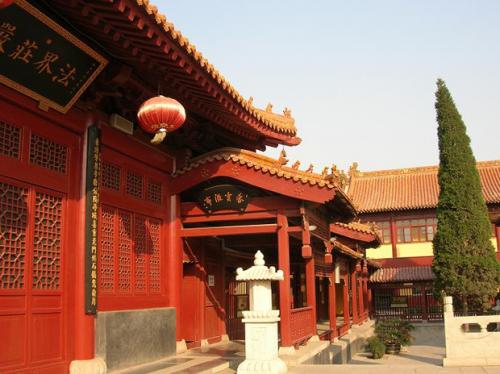
Those of us who get the chance go on our summer vacations with one thought in mind - to get away from it all. A week or so of big meals, nightlife, and general self-indulgence is a great recipe for relaxation, but not necessarily for recharging. Stressed-out souls need peace, not distraction.
For more and more Chinese with time off, a Buddhist retreat offers something unavailable at beach resorts or foreign cities, fulfillment. Bailing Chansi, a seventeen-hundred year old temple outside of Hebei's Shijiazhuang, holds what translates to a ‘Zen Life summer camp', with numbers of visitors swelling each season. A week of simple vegetarian meals, chanting, and quiet contemplation is an experience not available from any tour office.
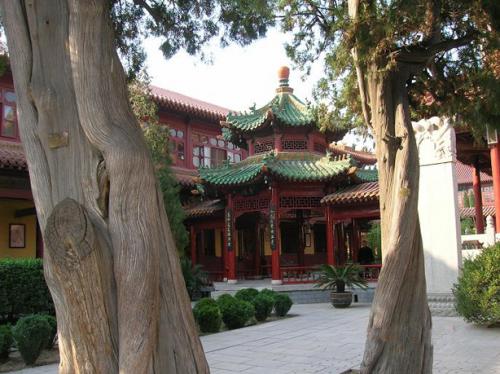
A Chinese temple is a nice place to visit, but few consider living there. Bailing Chansi is like many other temples in China, peaceful, ornate, and oozing with history. Over seventeen centuries it has gone through name changes: Guangyingyuan, the Buddha Garden in its early days, and Yonganyuan, the Long Peace Garden during the Southern Song Dynasty, A visiting Yuan emperor was particularly taken with the many cypress trees shading the grounds, leading to its current name, ‘the White Forest Temple'.
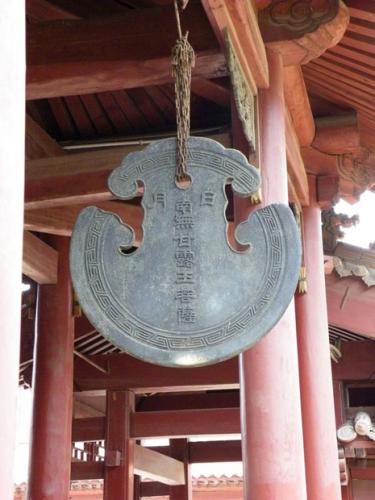
No lolling in bed until noon for members of the Zen Life summer camp. The day starts at four in the morning, when bells stir the sleepy from their spare cots. Half an hour is permitted for yawning and ablutions, but by four thirty all are gathered before a line of nuns in a large hall. Men stand to the right, women to the left. All bow, stand and hear a sutra, then follow the nuns in a silent circle as they contemplate the piece of wisdom. The process is repeated over and over until the six. The nuns extinguish the lamps as morning light fills the hall.
The first and biggest meal of the day at Baling Chansi is a far cry from the heavy breakfast buffet most of us expect on vacation. Zen Buddhists seek always to quiet the natural desires, and adhering to simple vegetarian meals constitutes a spiritual victory over the greedy ego.
Men enter the dining hall from the right, and women from the left, all silently, taking their places at long tables on wooden stools. Two bowls wait at each place, one for rice porridge, and the other for vegetables. But there is no food until the arrival of the abbess and her attendants. Zen campers can eat as much as they like, but waste is forbidden, as is conversation. The cooks, fellow monks and nuns, see to it that all servings are finished. The meal ends with another chiming bell, and a bow of gratitude to those who prepared the simple fare.
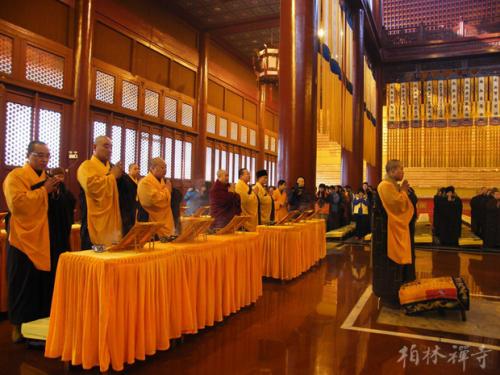
Two thirds of Life Zen campers' time at Bailing Chansi is spent attending lectures. No fluorescent, PPT-riddled presentations, these lectures form in circles, in gardens or ancient halls, with nuns at the center, who read sutras and hold forth on the Zen aspects of Buddha's teachings. However, there is no talking until everyone has completed half an hour's zuochan, seated meditation. The physical protocol for zuochan attempts to achieve the peace of the Buddha by imitating his bearing.
The lecturing nun strikes a wooden fish with a gavel three times, a signal for attendees to lower the lids to half mast, touch the tongue to the roof of the mouth, and let the face slacken into an expression of pleasant absorption. The seated meditators keep a straight back but lean slightly forward, and count cycles of ten deep breaths.
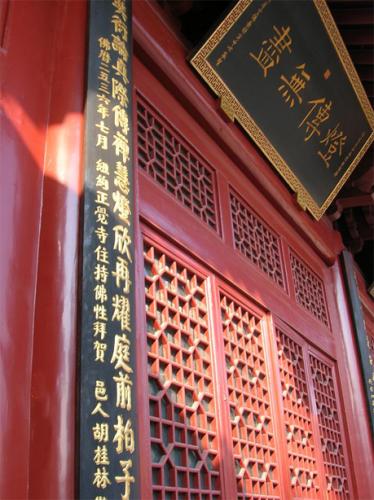
After zuochan, the nun commences lunfa, a series of prosaic statements that explain the manifestation of Zen in everyday life. A Q&A session follows, which extends to personal aspects of the guests' everyday lives. Helping Zen Life campers to see exactly where in their lives obstacles to enlightenment lie, the nun assumes the role of a Zen psychologist.
Time not spent in the morning meditation, at meals or lectures is discretionary, but naturally there are no TVs or Tom Clancy novels at Bailing Chansi, let alone wifi. Solitary walks through the gardens and quiet conversations fill the gaps until bed time at ten o'clock. The overarching rule is to avoid joking around and lighthearted banter at all times; nothing must disturb the serenity and sincerity which reign at Bailing Chansi.

A few other rules are a tad more puzzling to the uninitiated. If approaching the wide doors of the temple from the left side, one must step through left foot first. If from the right side, right foot first. Why not just walk through the middle? That is a right permitted only to the Buddha, should he ever visit the temple.
If the whole experience sounds a bit too austere, remember that an extended period without excess stimulation or distraction is a spiritual purge. Also, a day at the camp costs only ten RMB for those who sleep six to a room, twenty for those who choose four. Only a short bus ride from Shijiazhuang, Bailing Chansi offers the kind of getaway chosen by the world-weary centuries before hotels even had star ratings.

Ernie's blog
Warning:The use of any news and articles published on eChinacities.com without written permission from eChinacities.com constitutes copyright infringement, and legal action can be taken.
All comments are subject to moderation by eChinacities.com staff. Because we wish to encourage healthy and productive dialogue we ask that all comments remain polite, free of profanity or name calling, and relevant to the original post and subsequent discussion. Comments will not be deleted because of the viewpoints they express, only if the mode of expression itself is inappropriate.
Please login to add a comment. Click here to login immediately.